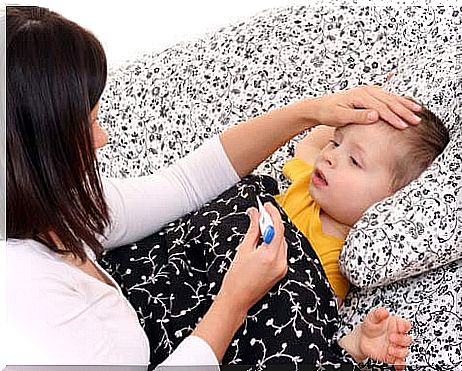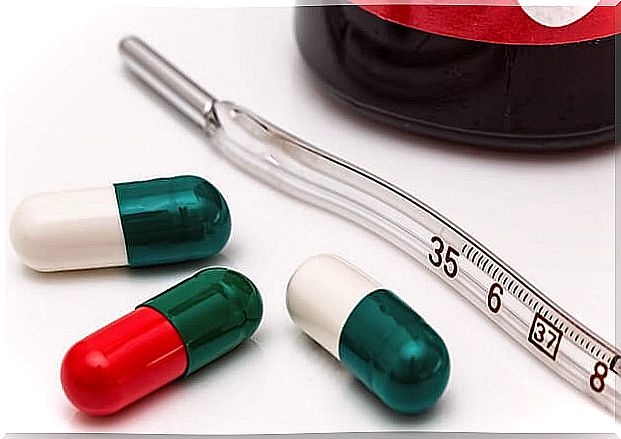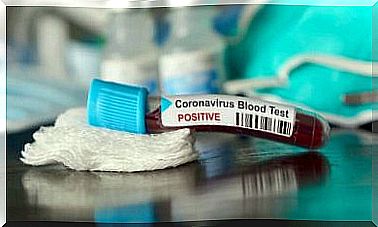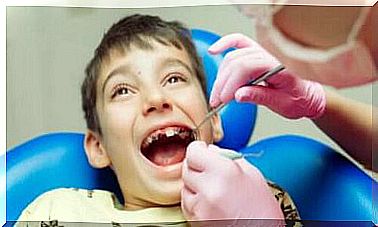Learn All About Hand-foot-mouth Disease

Hand-foot-mouth disease is a contagious disease caused by the Coxsackie virus. It causes mouth sores and rashes on hands and feet. It usually starts in the throat and then spreads to the rest of the body.
If you’d like to learn more about hand-foot-mouth disease, in this article we’ll talk about how it’s transmitted, what the symptoms are, and what you can do about treatment.
How is hand-foot-mouth disease transmitted?
As with other contagious diseases, the first thing we should know about hand-foot-mouth disease is how it is transmitted.
Thus, it is important to know that this viral infection can be transmitted:
- by fecal coliforms
- by saliva
- by the liquid of the bubbles
- by nasal secretions
- by direct contact with the infected person through kisses, hugs, handshakes…, etc.
- by contact with an infected object (cutlery, glasses, toys, clothes, table surfaces…, etc.)

What are the symptoms of hand-foot-mouth disease?
Some of the most common symptoms that indicate this viral infection are:
- Red rash or spots on palms and soles
- Painful sores in the throat, gums, area around the mouth, tongue, inside cheeks and tonsils
- frequent headache
- Fever
- Lack of appetite
- Muscle pain and malaise throughout the body
- Sore throat
- Excessive salivation (small children)
- In some patients, rash develops on the elbows, knees, and buttocks.
What is the treatment of hand-foot-mouth disease?
What is most frightening about this disease is that, at least so far, there is no medicine that can cure it.
When a child catches the disease, the only thing we can do is provide all the care and attention needed to make this very complicated and active period of the disease more pleasant.
Hand-foot-mouth disease lasts for about 7 days. And the treatments that can be applied in these cases are:
- Administer drugs that are used to lower fever according to the child’s weight and age. In this case, some examples can be Paracetamol (orally), Ibuprofen (orally) and Dipyrone (tablet or suppository)
- Drink a lot of water
- Make mouth rinses and gargle with a saline solution that serves to cool the throat, tongue and infected tonsils. For this you can boil a glass of water with half a teaspoon of salt. Allow the liquid to cool before giving it to your child.
Important: The treatments recommended in this article must be previously checked by your child’s pediatrician. He is the best person to determine the most appropriate treatments for your little one’s case.
Get the inside scoop on hand-foot-mouth disease

Hand-foot-mouth disease is produced by some strains of the Coxsackie virus group or coxackievirus.
When one of these viruses infects, the body becomes immune to it, but only to it. Your child can get this disease again if he comes in contact with another virus from this group.
Therefore, it is essential to take all reasonable steps to avoid exposing your child to germs. The most suitable way that exists for this is, therefore, to maintain good hygiene.
Wash your child’s hands quite often, especially when he is playing and walking on the floor. Also keep up-to-date on the cleanliness of toys and surfaces it can touch. Germs can be anywhere.
Another fact about this disease is that if your child has ulcers inside their mouths, they may not want to eat hot food as they will feel uncomfortable swallowing.
To avoid pain and cool your throat, offer soft, cold foods such as ice cream, jellies, and puddings.
Finally, we know how important it is for a child to play and have fun with others . But your child can get this infection if someone infected coughs or sneezes without covering their mouth with a tissue, for example. Remember that he can also pass it on in the same way.
For this reason, if there is the slightest suspicion that your child or one of your friends has hand-foot-mouth disease, avoid group play until you confirm the diagnosis.
Remember, your child’s health should be your priority, as well as your child’s overall physical well-being.









